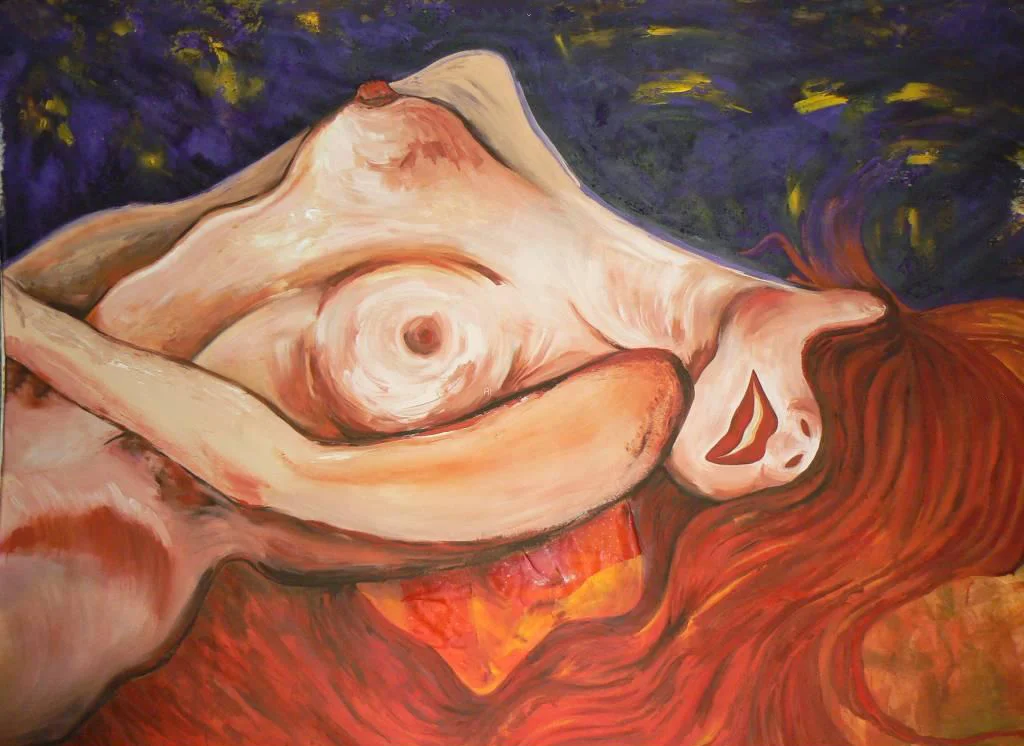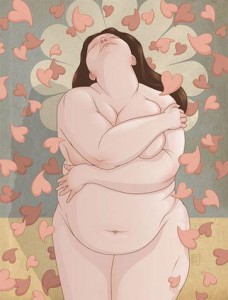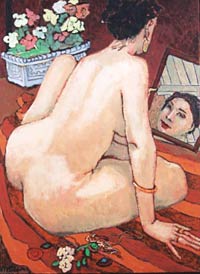Female Libido Sexual Health
Female Libido Sexual Health, a loss of desire in the bedroom for her is also known as hypoactive sexual desire disorder (HSDD).written by Certified Somatic Sexologist Aleena Aspley of Brisbane Australia.
.
WHAT IS LIBIDO?
Libido encompasses the primal sexual instinct, encompassing erotic desire and the pursuit of pleasure. Often referred to as your ‘sex drive,’ libido’s intensity varies from woman to woman and is susceptible to a multitude of influencing factors.
Diminished or decreased libido can manifest at any stage of life and may result in:
- A decrease in the inclination for sexual activity
- A diminished sense of satisfaction or enjoyment from sexual experiences
Numerous women will encounter periods of low libido throughout their lives. These periods might extend over a lengthy duration or emerge as temporary occurrences, such as after childbirth, during periods of heightened stress, or amid relationship turbulence.
In relationships, a diminished libido can become problematic when one partner desires sex more frequently than the other. Termed ‘desire discrepancy,’ this misalignment can lead to conflict and unhappiness.
.
.
THE FEMALE LIBIDO AND HORMONES
Female Libido Sexual Health
Female hormones play a significant role in influencing a woman’s libido, or sexual desire. The interplay of these hormones orchestrates various physiological processes that can impact a woman’s sexual responsiveness and interest. Here’s how female hormones affect a woman’s libido:
ESTROGEN: This hormone has a complex relationship with libido. It helps maintain the health of the vaginal tissues and enhances blood flow to the genital area, contributing to sexual arousal. When estrogen levels are lower, such as during menopause, it can lead to symptoms like vaginal dryness, discomfort during intercourse, and reduced libido.
PROGESTERONE: Progesterone can have a calming effect and counterbalance the effects of estrogen. Fluctuations in progesterone levels, such as those occurring during the menstrual cycle, might influence mood and energy levels, indirectly affecting libido.
TESTOSTERONE: Often considered a male hormone, testosterone is also present in women, albeit in smaller amounts. Testosterone is associated with sexual desire, arousal, and overall energy levels. Decreases in testosterone levels, which can happen with age or certain medical conditions, might lead to a decrease in libido and overall sexual responsiveness.
PROLACTIN: Elevated levels of prolactin, especially during breastfeeding, can suppress ovulation and menstruation. This might lead to a temporary decrease in sexual desire for some women.
OXYTOCIN: Often called the “bonding hormone,” oxytocin is released during intimate physical contact, such as hugging, cuddling, and sexual activity. It promotes emotional connection and can influence sexual desire and responsiveness.
Female Libido Sexual Health
CORTISOL: This stress hormone can indirectly impact libido. Chronic stress and high cortisol levels can lead to fatigue, anxiety, and reduced interest in sexual activities.
THYROID HORMONES: Thyroid hormones regulate metabolism, energy levels, and mood. Imbalances in thyroid function, such as hypothyroidism, can lead to symptoms like fatigue, depression, and decreased libido.
Every women is different. some women are more sensitive to hormonal fluctuations, while others may not experience significant changes to their sex drive. Additionally, psychological and emotional factors, relationship dynamics, lifestyle, and overall health also contribute to a woman’s libido.
.
.
THE FEMALE LIBIDO & CHILDBIRTH
Female Libido Sexual Health
The experience of childbirth, which involves significant physical and emotional changes, can have both short-term and long-term effects on a woman’s sexual desire and responsiveness.
.
SHORT-TERM EFFECTS AFTER CHILDBIRTH
After childbirth, especially vaginal childbirth, a woman’s body goes through various changes that can impact her libido:
PHYSICAL RECOVERY
The physical recovery process after childbirth, including healing from possible tearing or episiotomy, can lead to discomfort or pain during sexual activity, temporarily reducing libido.
HORMONAL CHANGES
Hormone levels, including estrogen and progesterone, undergo significant fluctuations during and after childbirth. These hormonal shifts can affect mood, energy levels, and vaginal lubrication, potentially influencing sexual desire.
FATIGUE & SLEEP DEPRIVATION
Caring for a newborn often leads to sleep deprivation and fatigue, which can negatively impact libido and overall energy levels.
EMOTIONAL ADJUSTMENT
The emotional adjustments and demands of motherhood can impact a woman’s emotional well-being and focus, potentially affecting sexual desire.
LONG-TERM EFFECTS AFTER CHILDBIRTH
Female Libido Sexual Health
While many women experience a temporary decline in libido shortly after childbirth, for some, these effects may persist in the long term:
BODY IMAGE
Changes in body image due to weight gain, stretch marks, and other physical changes associated with pregnancy and childbirth can affect a woman’s self-esteem and comfort with her body, influencing sexual confidence and desire.
VAGINAL CHANGES
Changes in vaginal elasticity and lubrication, as well as the potential for ongoing discomfort, can impact sexual pleasure and desire.
PARENTING DEMANDS
The demands of parenting, including fatigue, stress, and time constraints, can continue to affect a woman’s energy levels and emotional well-being, indirectly influencing her libido.
RELATIONSHIP DYNAMICS
Changes in relationship dynamics and communication after having a child can impact emotional intimacy, which is closely tied to sexual desire.
HORMONAL FACTORS
Hormonal changes that occur during breastfeeding and postpartum can continue to influence libido as long as breastfeeding continues.
Some women may experience a temporary dip in libido after childbirth, others may find that their sexual desire remains relatively unaffected. Open communication with a partner, managing stress, seeking support, and allowing time for physical and emotional recovery are important steps for addressing changes in libido after childbirth.
.
.
HER LIBIDO & PERIMENOPAUSE
Female Libido Sexual Health
Perimenopause, the natural transition before menopause, introduces various hormonal shifts that can influence a woman’s libido. While some may encounter an increase in sexual desire during this phase, others might notice a decline. These shifts are often interconnected with emotional changes, such as mood swings or irritability, and physical transformations like vaginal dryness and discomfort.
Perimenopause typically begins in a woman’s 40s, although it can start earlier or later. During this phase, the ovaries gradually produce fewer reproductive hormones, particularly estrogen and progesterone, as the body prepares for menopause.
Perimenopause hormonal fluctuations can have various effects on the female libido and sexual interest, either an increase or decrease in desire. Declining estrogen levels can result in changes to vaginal tissues, including reduced lubrication and elasticity. These changes may contribute to discomfort during sex.
Her libido, at perimenopause can be influenced by hormonal fluctuations resulting in mood swings, irritability, and even depression and anxiety. Many women experience sleep disturbances, such as insomnia and night sweats. Lack of sleep causes fatique and reduced energy levels affects sexual desire.
Physical changes associated with perimenopause, such as weight fluctuations and changes in skin and hair, can influence a woman’s body image and self-esteem, potentially impacting her comfort, confidence and sex drive.
.
.
SEXUAL INTEREST & MENOPAUSE
Female Libido Sexual Health
The journey through menopause, a natural phase of a woman’s life, brings forth a dynamic interplay between sexual interest and hormonal changes. As estrogen and progesterone levels gradually decline, it’s not uncommon for shifts in sexual desire and arousal to occur. Some women may experience a dip in libido, attributing it to factors like vaginal dryness, mood fluctuations, and the physical changes that often accompany this transition.
For many women, menopause ushers in a period of navigating fluctuating levels of sexual interest. While some may find their desire remains steady, others might notice changes that require adaptation and understanding.
The decrease in estrogen can lead to alterations in vaginal lubrication and tissue elasticity, potentially causing discomfort during intimacy. Additionally, mood swings, fatigue, and other menopausal symptoms can indirectly influence sexual desire.
Amid the landscape of shifting sexual interest during menopause, women have the opportunity to embrace empowerment and self-care. This period of transition promotes a more profound bond with one’s own body and sexuality, nurturing a feeling of empowerment in taking care of one’s sexual health.
Engaging in open conversations with partners about changing needs, prioritizing emotional intimacy, and considering practical solutions like lubricants or hormone therapies can contribute to a positive and empowering experience. Through acknowledging and tackling the diverse dimensions of sexual desire in the menopausal phase, women can embark on this transformative path with strength and self-acceptance.
.
.
WHAT ELSE CAN EFFECT HER LIBIDO?
Female Libido Sexual Health
Beyond hormone health, childbirth, perimenopause, and menopause, various other factors can significantly impact a woman’s libido and sexual drive during her life-time:
- STRESS & MENTAL HEALTH: High levels of stress, anxiety, and depression can dampen sexual interest. Mental health struggles can disrupt the hormonal balance and neurotransmitter function that play a role in sexual desire.
- MEDICATIONS: Certain medications, such as antidepressants, antihistamines, and hormonal contraceptives, can have side effects that lower libido or inhibit sexual responsiveness.
- RELATIONSHIP DYNAMICS: The quality of a woman’s relationship, emotional connection, and communication with her partner can strongly influence her sexual desire. Conflict or dissatisfaction within the relationship can lead to reduced interest in sexual activities.
- BODY IMAGE & SELF-ESTEEM: A negative body image and low self-esteem can affect a woman’s confidence and comfort during intimate situations, leading to a decrease in sexual desire.
- FATIGUE & LIFESTYLE: Exhaustion from a demanding lifestyle, lack of quality sleep, or overwhelming responsibilities can contribute to reduced energy levels and, consequently, a lower interest in sexual activities.
- CHRONIC ILLNESS & PAIN: Physical conditions like chronic pain, autoimmune diseases, or other health issues can result in discomfort and fatigue, impacting sexual desire and responsiveness.
- HORMONAL IMBALANCES: Irregularities in hormone levels not related to perimenopause or menopause, such as polycystic ovary syndrome (PCOS) or thyroid disorders, can affect sexual interest.
- LIFE TRANSITIONS: Major life events, such as divorce, loss of a loved one, or career changes, can lead to emotional upheaval that affects sexual desire.
- CULTURAL & RELIGIOUS BELIEFS: Cultural or religious beliefs and societal norms around sexuality can shape a woman’s attitudes and feelings toward sexual activities.
- TRAUMA: Previous traumatic experiences, including sexual abuse or assault, can have lasting effects on desire, comfort, arousal and sex drive.
-
AGING: While not exclusively tied to menopause, aging can bring about changes in health, body, and self-perception that influence sexual desire.
.
.
EVERY WOMAN’S EXPERIENCE IS UNIQUE
Female Libido Sexual Health
The intricate dance of female libido and sexual desire weaves through the tapestry of a woman’s life, drawing influences from a myriad of factors – hormonal, emotional, psychological, and relational.
As we’ve explored the various stages and elements that shape this journey, it becomes evident that there is no one-size-fits-all formula. Each woman’s experience is a unique blend of her biology, experiences, and environment.
Navigating the ebbs and flows of sexual interest is not merely about maintaining a physical connection; it’s about embracing a fundamental aspect of our human nature, encouraging emotional intimacy, and nurturing our overall well-being. It’s a journey that calls for open communication, self-awareness, and an unwavering commitment to female self-care. By acknowledging the complexities that influence female libido, a woman can empower herself to take charge of her sexual narratives, prioritize her desires, and seek out the support she needs to cultivate a satisfying and fulfilling sex life.
So, whether you’re embarking on the adventure of motherhood, navigating the labyrinth of perimenopause and menopause, or traversing the diverse landscape of life’s changes, remember that your sex life is an integral part of your identity. It’s a sacred flame that deserves to be tended with kindness, curiosity, and a genuine understanding of what truly ignites your passion. Embrace your journey, cherish your desires, and step forward into a world of empowerment, connection, and unapologetic sexual self-expression. Your libido is a beautiful, ever-evolving story waiting to be written – one that deserves to be celebrated, honored, and savored to its fullest.
.
.
 Written on August 12th, 2023 by Aleena Aspley, who is a Certified Sexological Bodyworker.
Written on August 12th, 2023 by Aleena Aspley, who is a Certified Sexological Bodyworker.
Aleena is open to seeing people of all genders and sexual orientations.
Her Tantric bodywork studio is located in North Brisbane, Queensland.
.
Women: YoniWhisperer.com.au
Couples: TantricWhisperer.com
Female Libido Sexual Health
.
YONI MAPPING MASSAGE BRISBANE — Intimate Female Awakening Bodywork
.
DOES THE VAGINA HAVE TASTE BUDS? — My Spaghetti Bolognese Analogy
Female Libido Sexual Health
.
.








Pingback: Vaginismus Vulva Vaginal Pain Unlocking Solutions for HealingYONI WHISPERER BODYWORK
Pingback: Female Sex Drive Libido - Why do Women Lose Interest in Sex?YONI WHISPERER BODYWORK